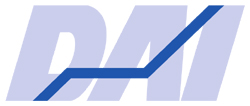Campus
Pensions gap
 In the DAX 30 companies, the gap in coverage could rise by €40 billion to €115 billion, in the light of developments in the US and British markets. This was found by a Mercer analysis on the development of balance-sheet disclosure of commitments to promised benefits. The cause is the decline in yields on corporate bonds, which affect the value of pension-plan commitments shown on the balance sheet. The yields on corporate bonds are the basis for deriving the interest rate for accounting purposes to be used in discounting future payment flows resulting from pension commitments. In Germany and the Euro zone these have declined, at good soundness, from 5.09% at the end of 2009 to 3.95% in late September 2010. Dax companies’ commitments, currently €220 billion, could rise by some 50 billion, whereas the value of pension-fund assets will rise by only a good ten billion, explains Thomas Hagemann, Mercer’s chief actuary in Germany.
In the DAX 30 companies, the gap in coverage could rise by €40 billion to €115 billion, in the light of developments in the US and British markets. This was found by a Mercer analysis on the development of balance-sheet disclosure of commitments to promised benefits. The cause is the decline in yields on corporate bonds, which affect the value of pension-plan commitments shown on the balance sheet. The yields on corporate bonds are the basis for deriving the interest rate for accounting purposes to be used in discounting future payment flows resulting from pension commitments. In Germany and the Euro zone these have declined, at good soundness, from 5.09% at the end of 2009 to 3.95% in late September 2010. Dax companies’ commitments, currently €220 billion, could rise by some 50 billion, whereas the value of pension-fund assets will rise by only a good ten billion, explains Thomas Hagemann, Mercer’s chief actuary in Germany.
Shaky board seats
Board members worldwide keep their seats for less than four years. Tighter controls by supervisory boards have had the consequence that the duration of office is increasingly falling, a survey by headhunters AESC (Association of Executive Search Consultants) to be published in late November finds. According to Booz Allen Hamilton, German board members' period in office fell from 1998 through 2007 from an average of 8.3 years to 4.7. According to Bain, the figure for Germany is five and a half years. 70% of the 400 to 500 personnel consultants surveyed assumed that the duration of posts will follow the long-term trend and continue to decline in future – the main reason being, however, differences in opinion between board and supervisory board.
Handelsblatt on top
Among financial experts' compulsory daily reading, the Handelsblatt leads Financial Times Deutschland, the Börsenzeitung and the Frankfurter Allgemeine Zeitung. This was the finding of a survey by consultancy firm IP.on among small- and mid-cap analysts. As regards quality, though, the Börsenzeitung was clearly on top. Among information services, Bloomberg ranks above Reuters and Dow Jones.
Revealing words
If board members presenting business reports frequently use the word “we” instead of “I”, that may in certain circumstances be an indication that their statements are untrue or inaccurate, finds a still unpublished study by Harvard University. The two researchers involved evaluated some 30,000 telephone conferences between 2003 and 2007 and analysed them on the basis of linguistic models. In particular, they looked into which statements had to be corrected shortly after, assuming that managers already knew at the data presentation that the figures were less rosy than presented.
K+S business report is No. 1
In 2009, according to manager magazine, K+S published the best business report. In the overall assessment, MDax companies MTU Aero Engines and Deutsche Post followed in second and third place. The winner in the TecDax was solar specialist Solarworld.
Economic situation on the up
 Three quarters of German IR managers assessed the current position as an improvement. 56%, more than ever before, are also optimistic about the future. In the half-yearly survey, Deutsche Investor Relations Verband (DIRK) surveyed German, Austrian and Swiss IR chiefs, as well as British ones for the first time. Particularly financial-services providers, banks and technology and pharmaceutical companies are optimistic. The corresponding figures for Switzerland, Austria and Britain are slightly below those for Germany. According to the IR managers assessments, institutional investors (41.0%) lay the greatest value on the theme of sustainability, while journalists (10.4%) and employees (9.7%) are less interested in this topic. 62% of respondents find the topic currently less important, but 70.1% believe that its relevance will increase in future. 76.2% of DAX companies already have binding sustainability standards, and a further 19% will develop them in the next 12 months. This trend is downward in the MDax and TecDax.
Three quarters of German IR managers assessed the current position as an improvement. 56%, more than ever before, are also optimistic about the future. In the half-yearly survey, Deutsche Investor Relations Verband (DIRK) surveyed German, Austrian and Swiss IR chiefs, as well as British ones for the first time. Particularly financial-services providers, banks and technology and pharmaceutical companies are optimistic. The corresponding figures for Switzerland, Austria and Britain are slightly below those for Germany. According to the IR managers assessments, institutional investors (41.0%) lay the greatest value on the theme of sustainability, while journalists (10.4%) and employees (9.7%) are less interested in this topic. 62% of respondents find the topic currently less important, but 70.1% believe that its relevance will increase in future. 76.2% of DAX companies already have binding sustainability standards, and a further 19% will develop them in the next 12 months. This trend is downward in the MDax and TecDax.
DVFA is 50 years old
 In late October, the Deutsche Vereinigung für Finanzanalyse und Asset Management (DVFA) marked its 50-year jubilee with a celebration. The DVFA is the professional association of investment professionals, a member of EFFAS and ACIIA, and networked Europe-wide and worldwide. Currently it has 1,200 personal members, working as specialists and executives at over 400 investment houses, banks and fund companies or as independent capital-market service providers. Additionally, with four postgraduate programmes the DVFA is the leading training institution for the capital market, with now over 3,500 graduates. The DVFA also holds over 250 analyst conferences yearly, and in its panels to evaluate companies confers well-known distinctions like the Capital Investor Relations Prize and the Euro-finance Prize for Corporate Governance. It also sets standards for professional practice on the capital market that are acquiring increasing importance, ranging from the DVFA code for asset managers, investment consultants and analysts to the principles for fairness opinions. The high and growing importance of the DVFA is the merit particularly of long-term board chairman Fritz H. Rau, who made the DVFA’s name as a standard setter for the capital market.
In late October, the Deutsche Vereinigung für Finanzanalyse und Asset Management (DVFA) marked its 50-year jubilee with a celebration. The DVFA is the professional association of investment professionals, a member of EFFAS and ACIIA, and networked Europe-wide and worldwide. Currently it has 1,200 personal members, working as specialists and executives at over 400 investment houses, banks and fund companies or as independent capital-market service providers. Additionally, with four postgraduate programmes the DVFA is the leading training institution for the capital market, with now over 3,500 graduates. The DVFA also holds over 250 analyst conferences yearly, and in its panels to evaluate companies confers well-known distinctions like the Capital Investor Relations Prize and the Euro-finance Prize for Corporate Governance. It also sets standards for professional practice on the capital market that are acquiring increasing importance, ranging from the DVFA code for asset managers, investment consultants and analysts to the principles for fairness opinions. The high and growing importance of the DVFA is the merit particularly of long-term board chairman Fritz H. Rau, who made the DVFA’s name as a standard setter for the capital market.
DAI becomes DVAI
 The German Supervisory Boards Institute (DAI) has been renamed German Management & Supervisory Boards Institute (DVAI). This, says DAI President Professor Marcus Labbé, should make it clear that the Institute will also participate in the process of professionalizing management boards in the public sector.
The German Supervisory Boards Institute (DAI) has been renamed German Management & Supervisory Boards Institute (DVAI). This, says DAI President Professor Marcus Labbé, should make it clear that the Institute will also participate in the process of professionalizing management boards in the public sector.















